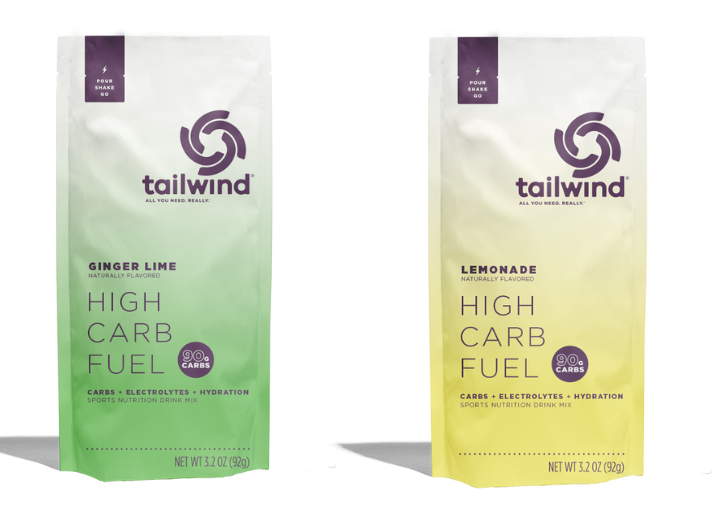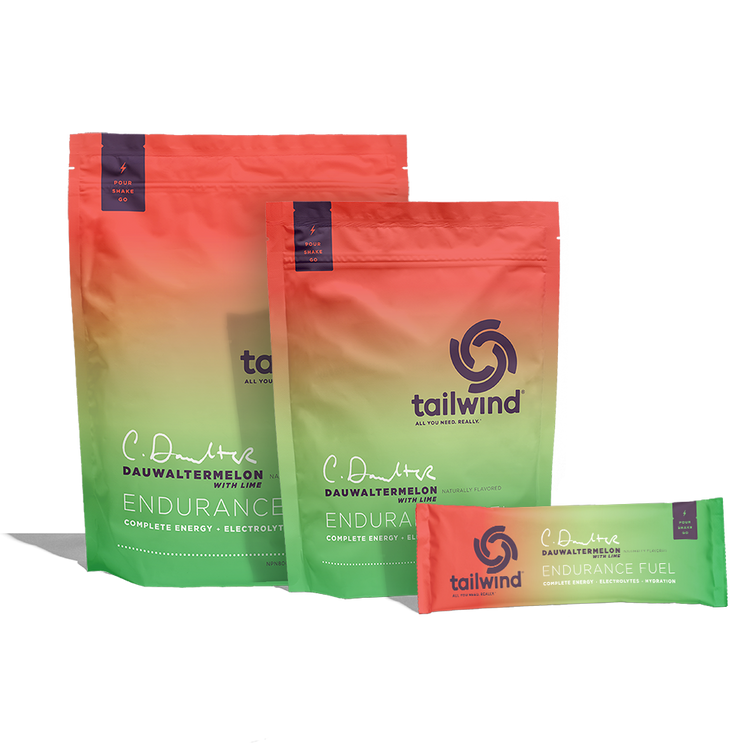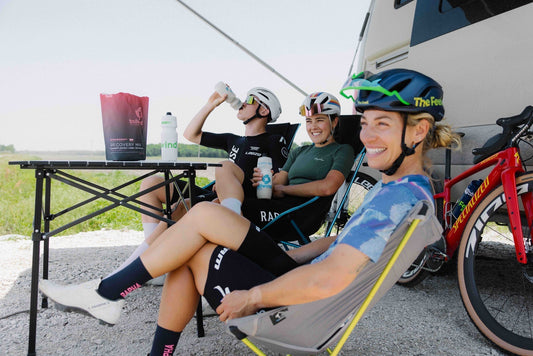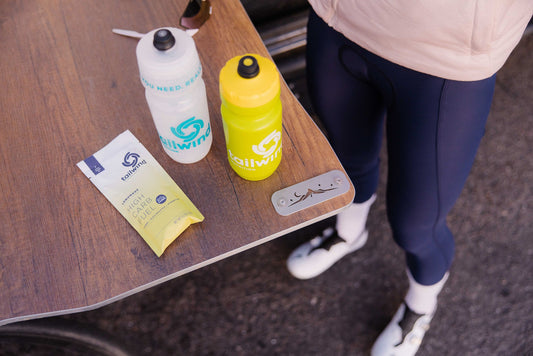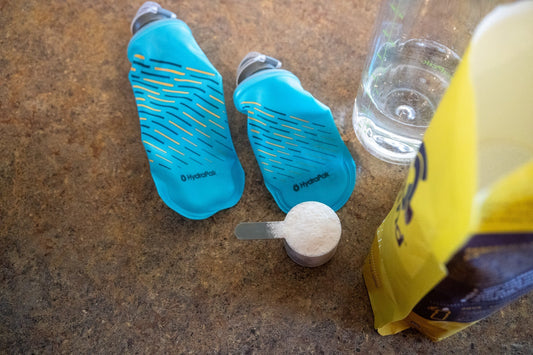Fueling for Fall Marathon Training
0 Comments
Key Takeaways:
-
Pre-run fueling: Eat 25–60g of carbohydrates before runs and start hydrated with products like Rapid Hydration to maximize performance.
-
During marathon fueling: Target ~90g of carbs per hour with balanced electrolytes, aiming for 12–16 oz of fluid and 200–600 mg sodium.
-
Gut training for race day: Practice your fueling strategy during training runs to reduce GI distress and improve consistency.
-
Post-run recovery nutrition: Refuel within 30–60 minutes with carbs and protein (like Recovery Mix) to repair muscles and speed recovery.
Fueling your fall marathon
Like it or not, road running season is here. Here’s how to dial in your marathon nutrition to perform at your best—and feel great doing it.
Fall is rapidly approaching, and most endurance athletes are starting to think less about the mountains and more about the marathon. This seasonal shift offers a great opportunity to build speed, focus on form and familiarize yourself with the low-hanging Strava segments on your local roads (go for that crown!).
Running a marathon (or half) requires a different approach to fueling than most trail and ultra events, especially if you’re after a PR. To perform at your best, you need a nutrition plan for before, during and after runs, from week one of your training block all the way through race day.
Before your run
Most sports dieticians recommend consuming at least 25 grams of carbohydrates before runs that are an hour or less, and at least 50-60 grams of carbs before runs longer than an hour. The closer to the run you’re eating, the simpler the carbohydrate source should be. Bananas, graham crackers, or a serving of Tailwind Endurance Fuel are all great options.
Professional runner, coach, and Tailwind athlete Brittany Charboneau always takes Rapid Hydration pre-run, to ensure she’s hydrated from the start—something that can be overlooked as the weather cools.
“Marathon fueling can be more predictable than trail running, so you can experiment to find what works for you and then just stay consistent with it, no matter what the weather is doing,” she said.
During your run
Carbohydrate needs vary depending on the athlete and the intensity of the run. For longer and/more intense runs, you should shoot for somewhere around 90 grams of carbohydrates per hour.
While many trail and ultra runners may be able to get some of those carbohydrates from real food, marathoners typically need to stick to the simplest forms of carbohydrates to reduce GI distress when moving at higher speeds (no more aid station quesadillas). At 90 grams of carbohydrates per serving, Tailwind’s High Carb Fuel is a great way to maximize fuel intake per sip. At 25 grams per serving, Endurance Fuel can also be a key piece of the carbohydrate pie.
While carb recommendations don’t vary a ton person to person, hydration can be highly variable. It’s worth dialing in as it can be the difference between hitting the wall or pushing the ceiling. Most athletes will want to shoot for 12-16 ounces of fluid per hour, and 200-600 mg of sodium. However, the saltier the sweater, the more electrolytes you may need. Both High Carb Fuel and Endurance Fuel contain balanced electrolytes per serving, so your carb source can double as your hydration source. Efficiency has never tasted so good!
For any run longer than an hour and for every race, Charboneau brings hydration and fuel to avoid getting behind.
“I’m that person who looks overprepared on the start line,” she said. “You can judge, but I will hunt you down because my tank is always full.”
Her go-to fuel/hydration source mid-run is the Naked flavor Endurance Fuel (“it goes with everything!”). She’ll often recommend her athletes set a 5-minute timer on their watches as a reminder to drink regularly, until it becomes habitual.
Like anything, hitting these carbohydrate and hydration numbers requires some practice, and gut training is essential for success on race day. That’s why Charboneau recommends training with your race-day nutrition, especially during key workouts and long runs.
Recovery
Faster road running can leave the legs feeling flat and heavy, especially if you’ve been summiting mountains instead of sharpening your speed all summer. Getting in proper recovery nutrition after a track session or long run on the road will be key to feeling up for tomorrow’s demands (and maximizing the benefit of your workout).
Post-exercise protein and carbohydrates help repair muscles and replenish glycogen stores, especially when consumed within the first 30-60 minutes after exercise. For those of us who don’t have a personal chef living in our passenger seat, a great way to kickstart recovery and buy yourself time until the next meal is Tailwind Recovery Mix. With 20 grams of complete, plant-based protein and just-right carbs (no fake sugars), it covers your nutritional bases without upsetting your stomach. Simply toss it in your bottle, shake with water, and start the body’s restoration process in the tastiest way possible.
Charboneau uses Recovery Mix everyday, and has been loving blending the strawberry flavor with ice and almond milk, which she says tastes as good as a strawberry milkshake.
“It’s so hard to overdo it with fueling and hydration,” she said. “Your body is working so hard to train, why not keep your tank full?”
Marathon training demands a lot from your body, and tackling weeks of long runs and workouts can add up to burnout without the proper nutritional support. On the flipside, when you give your body what it needs to perform, you may surprise yourself. Perceived endurance limitations are often fixable fueling limitations.
“It’s so important to stay on top of your fueling and hydration, even as you transition to less time outside and cooler temperatures,” said Charboneau. “Don’t slack on your nutrition—your PRs will come from fueling and being consistent with it.”
Recovery Mix contains sodium, potassium, calcium, and magnesium to restore electrolyte balance* and replace what you sweat out during your exercise. *Meets WHO hydration standards.
